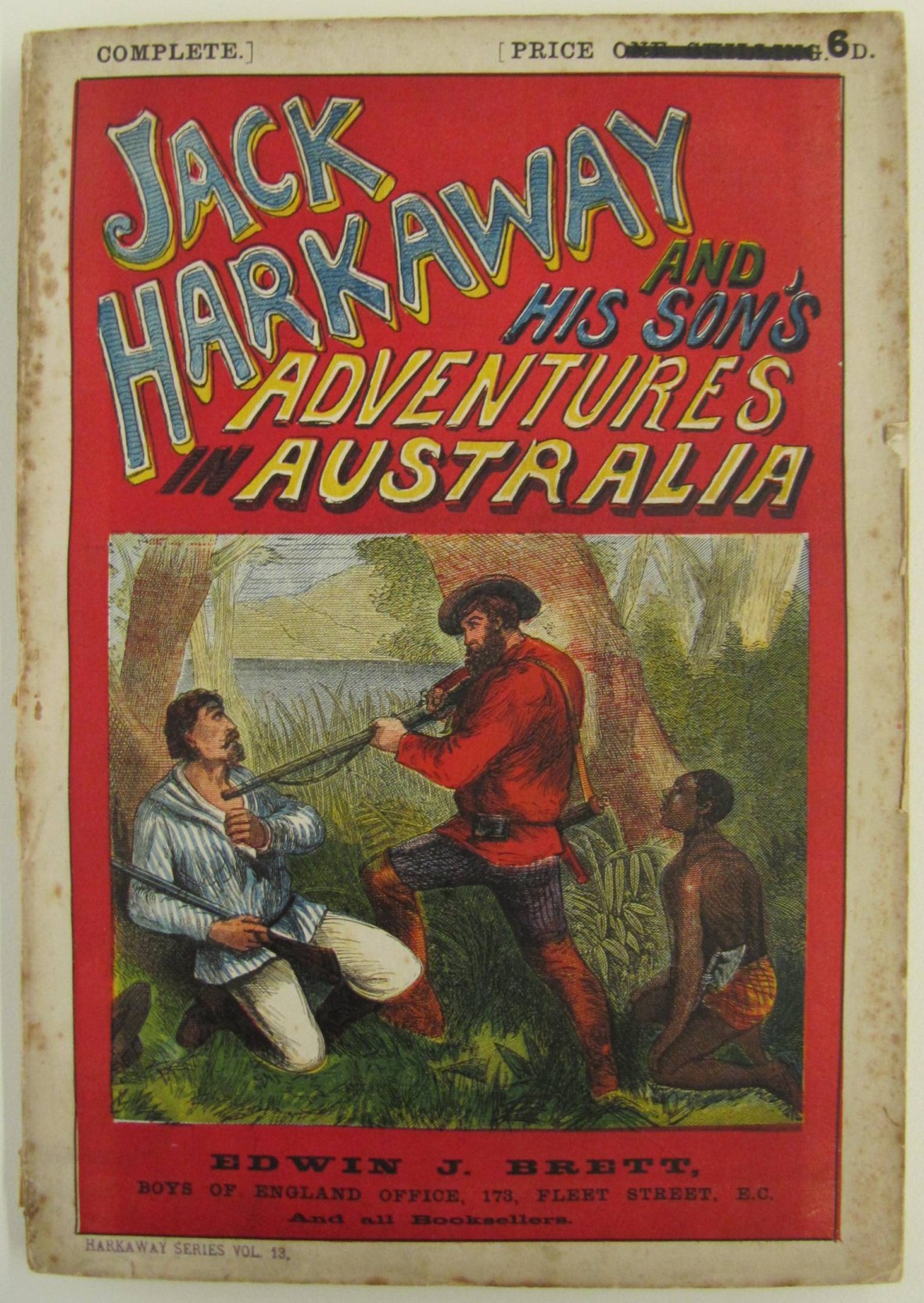Jack Harkaway and his son's adventures in Australia
By Joan Bruce, Queensland Literature Coordinator, State Library of Queensland | 11 March 2014
Jack Harkaway was one of the most popular heroes of that phenomenon of Victorian publishing, the penny dreadful.

The penny dreadfuls emerged in the 1830s as a source of cheap, escapist fiction for the newly literate working classes.
It was the penny dreadfuls which introduced Sweeney Todd to the world. They were lurid and sensational, and in their first phase extremely gruesome.
In the latter part of the nineteenth century, however, they morphed into cheap adventure serials for boys. The character Jack Harkaway appeared in 1871 and was loved by an entire generation of British schoolboys.
A schoolboy himself, he ran away to sea and went on to have adventures all over the world. Jack Harkaway and his son’s adventures in Australia was published around about 1876 and is a rattling tale featuring convicts, bushrangers and a plentiful amount of violence.
The penny dreadfuls were churned out by hacks and don't bother much with character development or layers of plot. They typically have colourful secondary characters who are more entertaining than the heroes. Also typical are floggings, hangings and shootings and detailed descriptions of the effects of this violence on the bodies of the victims.
This tale is well supplied with the violence and gore which appealed especially to teenage boys. It features convicts, bushrangers, abductions, crocodiles, attacking kangaroos, floggings and gruesome descriptions of death by strangulation. At one point our hero is buried alive and on another occasion Fighting Sue the Bushranger Queen (maddened by the death of her husband, the bushranger Morgan) even attempts to burn someone alive.
Joan Bruce - Queensland Literature Coordinator, State Library of Queensland
Comments
Your email address will not be published.
We welcome relevant, respectful comments.